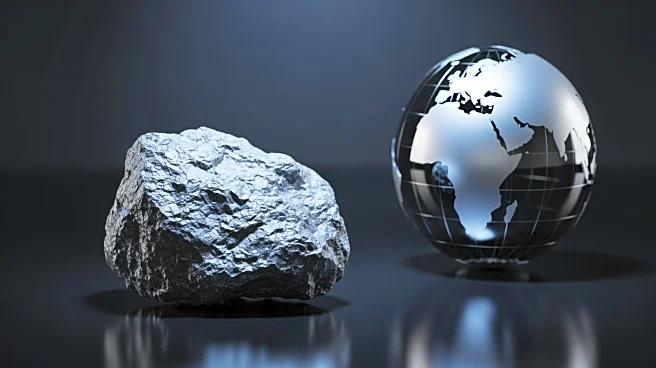What's Happening?
The US Export-Import Bank (EXIM) plans to invest $100 billion to secure supply chains for critical minerals, nuclear energy, and liquefied natural gas. This initiative aims to reduce reliance on foreign supplies and ensure stable and functioning raw material supply chains. The first tranche of deals will include projects in Egypt, Pakistan, and Europe, with a focus on securing critical materials that are essential for various industries. The bank's early deals will include a credit insurance guarantee for $4 billion of natural gas to Egypt and a $1.25 billion loan for the Reko Diq mine in Pakistan.
Why It's Important?
This investment is crucial for the US to maintain energy dominance and secure essential raw materials for its industries. By investing in critical
mineral supply chains, the US aims to reduce dependency on foreign sources, which can be unstable or unreliable. This move aligns with President Trump's energy-dominance agenda, which focuses on increasing US energy output and reducing regulatory barriers. The investment will support the development of infrastructure and technologies necessary for the energy transition and advanced technologies.
What's Next?
The US EXIM's investment strategy will likely lead to increased collaboration with international partners to secure critical mineral supplies. The bank's focus on projects in Egypt, Pakistan, and Europe suggests a strategic approach to diversifying supply sources. As the investment unfolds, it may lead to further deals and partnerships aimed at strengthening the US's position in global energy and mineral markets. The initiative may also prompt other countries to reassess their supply chain strategies and seek similar investments.

















